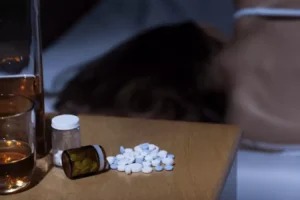
WebMD also recommends getting tested regularly, especially if you have a higher chance of developing kidney disease than the general population. Although the mechanism of alcoholic myopathy is not fully understood, it is likely that disruption of mitochondria-related energy homeostasis is important in promoting muscle cell (myocyte) injury (Eisner et al. 2014). Low blood levels of phosphate commonly occur acutely in hospitalized alcoholic patients, appearing in more than one-half of severe alcoholism cases. Although fluid overload—not alcohol itself—is considered the major contributor to beer drinkers’ hyponatremia, alcohol does appear to directly influence the kidney’s handling of sodium and other electrolytes, potentially resulting in hypernatremia. In a study by Rubini and colleagues (1955), subjects who consistently drank about 4 ounces (oz) of 100-proof bourbon whiskey experienced decreased sodium, potassium, and chloride excretion (i.e., increased retention of solutes). Although some exceptions exist, several historical studies have reported similar modest reductions in sodium and potassium excretion following alcohol use.
- These disturbances increase the kidneys’ workload in restoring acid-base balance through formation of an acidic or basic (i.e., alkaline) urine.
- It is important to see a doctor for any and all kidney pain, whether it is related to alcohol consumption or not.
- If you’re trying to numb unpleasant feelings or relieve stress, drinking often only pushes your stressful obligations back a day or two, ultimately making them even more time-sensitive and stressful.
- The secondary outcome was a rapid decline in kidney function, defined as a decrease in the eGFR ≥ 20 mL/min/1.73 m2 over 12 years.
- Women, older people, and those with smaller bodies should be especially careful.
Abnormal immunoreaction and renal tubular dysfunction to alcohol consumption
Please follow individual advice that is set for you by your renal team and dietician, and if you aren’t sure if you should be following any specific diet, please speak with your medical team. Be aware of the does alcohol affect your kidneys particular medication you are taking, as this may also limit how much alcohol you are allowed to drink. Drinking alcohol alongside some medications can cause problems with other organs such as your liver.
Association between systemic immune-inflammation index and cardiovascular-kidney-metabolic syndrome

Alcohol can not only directly damage the kidney, but also causes renal dysfunction by damaging other organs. In addition, some studies proved that alcohol consumption aggravates kidney injury in diabetic nephropathy rats [64]. Hepatorenal syndrome, which is secondary to alcoholic hepatitis [65], and acute kidney injury, secondary to rhabdomyolysis, also cannot be ignored [46].

Can excess alcohol drinking cause kidney cancer or kidney damage?
One of the main functions of the kidneys is to regulate both the volume and the composition of body fluid, including electrically charged particles (i.e., ions), such as sodium, potassium, and chloride ions (i.e., electrolytes). However, alcohol’s ability to increase urine volume (i.e., its diuretic effect) alters the body’s fluid level (i.e., hydration state) and produces disturbances in electrolyte concentrations. These effects vary depending on factors such as the amount and duration of drinking, the presence of other diseases, and the drinker’s nutritional status (see table, p. 90). One way in which alcohol directly affects the kidneys is by altering the form and structure of this pair of organs, as demonstrated by various animal studies.

Come up with a list of activities that will keep your mind off of drinking during the days you decide to abstain. For example, go for an evening walk with a friend, have a movie night with family members, or spend time tending to your garden. Even if your physical or mental wellness isn’t noticeably affected, your drinking might be a point of contention between you and your loved ones.


However, other studies found that long-term alcohol consumption aggravates renal fibrosis, which may be related to epithelial mesenchymal transdifferentiation and fibrosis induced by ethanol [33,47,56]. The NKF also notes that excessive drinking can cause acute kidney injury (AKI) — a sudden decrease in kidney function that usually resolves with time but may be lasting in some cases. Having more than three drinks in a day (or more than seven per week) for women, and more than four drinks in a day (or more than 14 per week) for men, is considered “heavy” drinking. Heavy drinking on a regular basis has been found to double the risk for kidney disease.
- However, long-term alcohol consumption can activate the RAS and enhance sympathetic nervous activity, which elevates the systemic BP and destroys the normal structure of the glomeruli.
- This has a harmful effect on your overall health and can increase the chance of complications.
- This leads to dehydration, especially when you drink alcohol in excess.
- The odds are high that your dad’s death certificate could be replicated.
Those with a diagnosis of CKD in the medical insurance record before the interview date were excluded. The follow-up duration began since the interview date and censored on the date of incident CKD, death, or Dec 31, 2013, which ever come first. People with alcohol-induced CKD will require treatment for AUD as well as CKD. Individuals who are concerned about their drinking habits can also consult a doctor for guidance on professional help and support.
- This indicates that long-term ethyl alcohol consumption can activate both intrinsic and extrinsic pathways of apoptosis in the kidneys (Figure 1).
- Golding’s team also found that the face shape of a mouse changed according to how much alcohol its father had consumed.
- Thus, the risk of kidney damage from alcohol increases with age, metabolic diseases, hypertension, and initial eGFR.
- However, during chronic ethanol consumption, the body also uses CYP2E1 in the liver as well as the kidneys.
- More clinical and experimental studies are needed to confirm the effect of alcohol consumption on CKD.
- Overall and subgroup analyses of the association between baseline alcohol consumption and decline in kidney function over 12 years in fully adjusted linear regression model.
- In contrast, the “overflow” theory postulates that ascites follows when the kidneys retain sodium in response to signals sent by a dysfunctional liver to expand plasma volume.
- Encourage organ donation and transplantation.Share personal stories to inspire others.
- The Centers for Disease Control estimates that most American adults (two out of three) drink alcohol.

